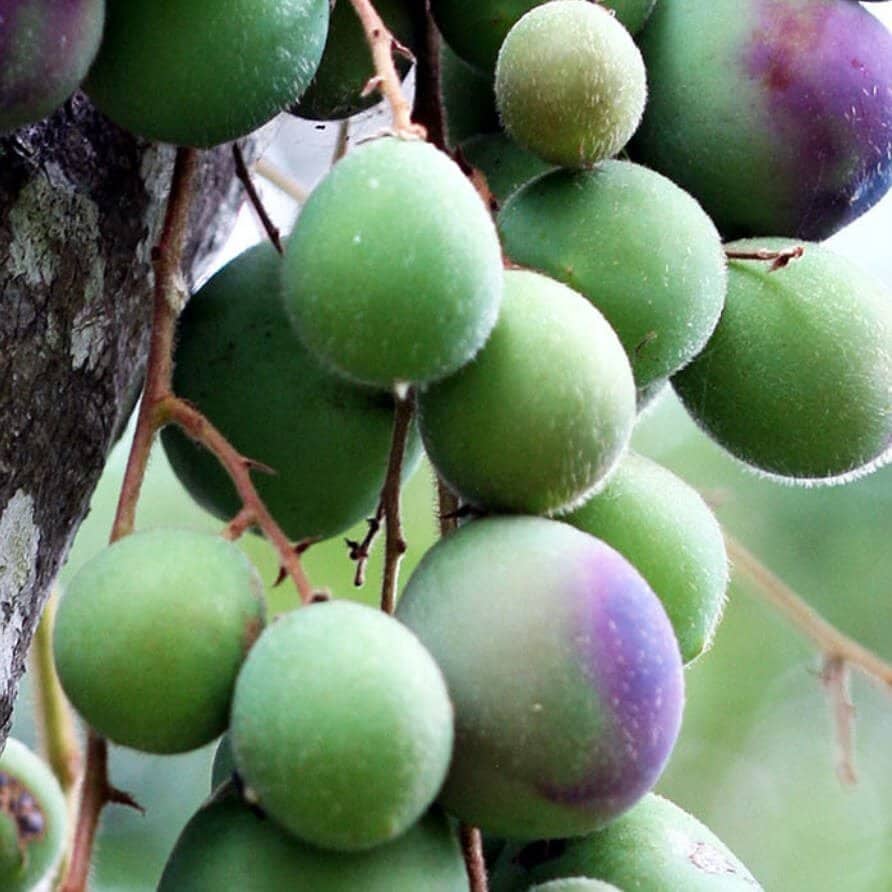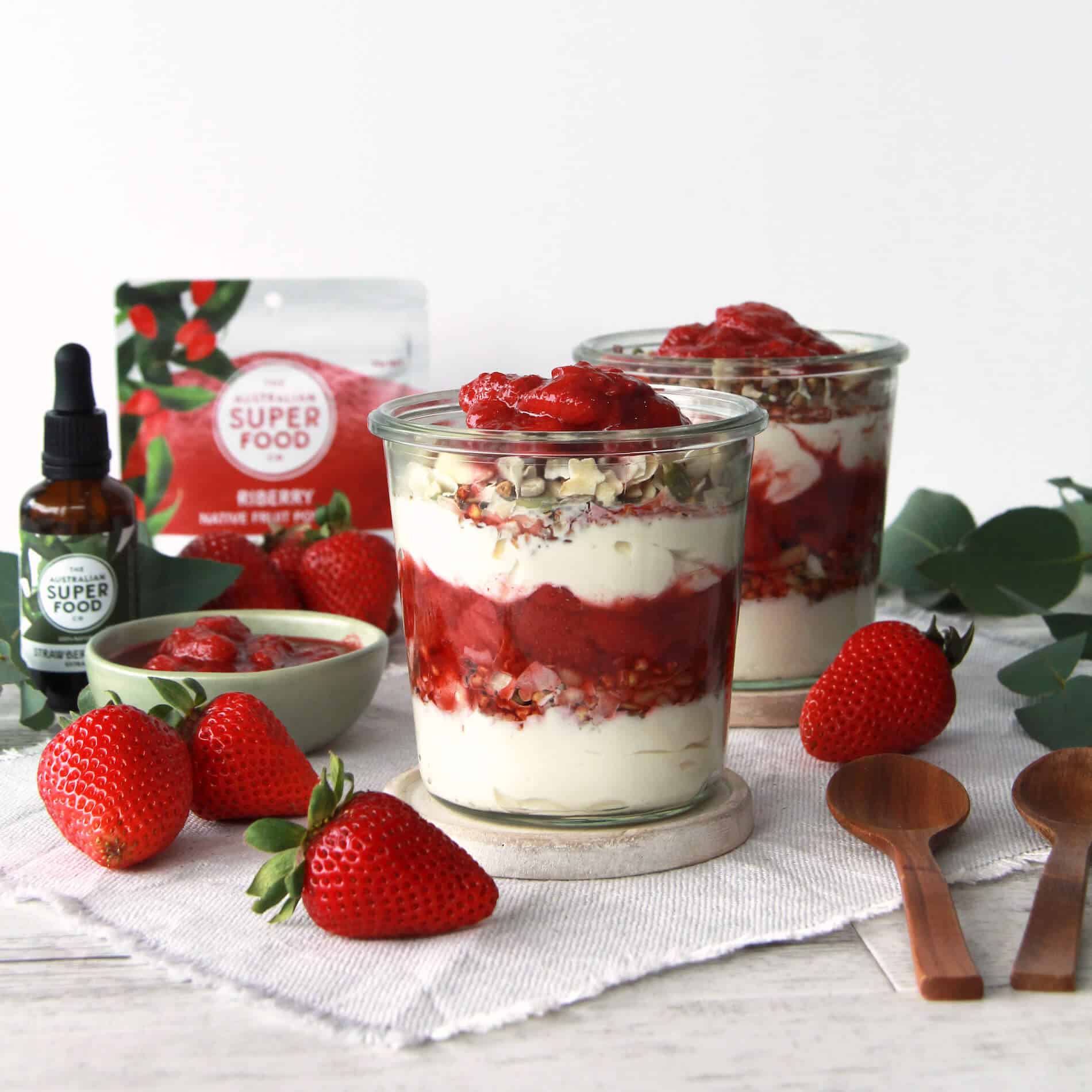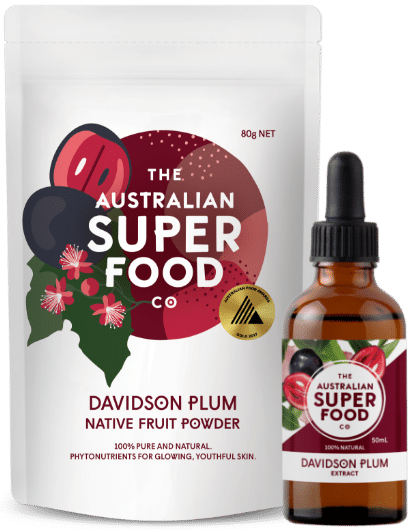Growing in several varieties, the Davidson plum (also known as Davidsonia) is a native tree found in areas of subtropical and tropical rainforests of eastern Australia. It was traditionally ‘bush tucker’ for Indigenous Australians in northern New South Wales and Queensland, who had the fortitude to eat them raw despite the fruit’s sharp acidity.
The Davidson plum has long been a food source for Indigenous Australians, who consumed the fruit raw despite its extremely sour taste. It has also been eaten by colonial settlers since the early 1900s, but they preferred to use the fruit in jams and cakes instead. The fruit was wild harvested for many years, however the popularity of the fruit – both as an ingredient for a range of food products and growing market demand – has seen the establishment of commercial plantations since 1990.
Download The Australian Superfood Co provenance map here.
Flavour:
Initially tart, with a sharp acidic plum flavour.
Palate:
Sharp acidic taste – slightly tart and only mildly sweet on the tongue and front palate with a bitter astringent back flavour and a pleasant spicy note.
Aroma:
Deep earthy aroma, reminiscent of rosella jam and stewed rhubarb, with subtle sweet musk tones.
The Davidson plum (sour plum) is a brilliantly coloured fruit: dark blueish-purple on the outside and a deep reddish-pink on the inside. It has a juicy pulp, and two unusual flat seeds. Due to the intense acidic flavour, the Davidson plum is rarely eaten as a fresh fruit. However, the tart and intense fruity flavour lends itself to be used in a range of sweet and savoury dishes, including cakes, jams, mayonnaise, sauces, yoghurt and ice cream.
Use Davidson plum native fruit powder in your cooking to impart a tart, sour flavour. It’s a great ingredient for almost any cream and fruit-based dessert, and works particularly well with chocolate (white in particular), cheesecake, sponge cake, creme brulee, ice cream and sorbet. Davidson plum complements a variety of fruit, in particular berries, apple, pear, citrus, tropical fruits (such as banana, mango, papaya, pineapple), stone fruit and coconut.
Complements most root vegetables, like sweet potato, pumpkin, beetroot, carrot, turnip, parsnip. Combine with olive oil, garlic, fresh herbs (such as rosemary, oregano and thyme) and sea salt and sprinkle over the top. This combination also makes the perfect baste for chicken and pork. Rub into fish before pan-frying and finish with a squeeze of fresh lemon juice, or mix a little Davidson plum native fruit powder with butter, garlic and sea salt and smear over corn on the cob.
The fruit pairs well with dairy products, and oil and vinegar-based meat marinades, salad dressings, meat-based jus and egg-based condiments.
Complements white fish, chicken, pork, lamb and other red meat (e.g. game meat such as kangaroo). Use it in a marinade, dressing, sauce or jus.
Davidson plum lifts the profile of alcoholic beverages such as gin, vodka, white rum, Cointreau and tequila. It adds a refreshing sour taste to soda, tonic and mineral waters, and lemonade.
Click here for delicious Davidson Plum recipes.










